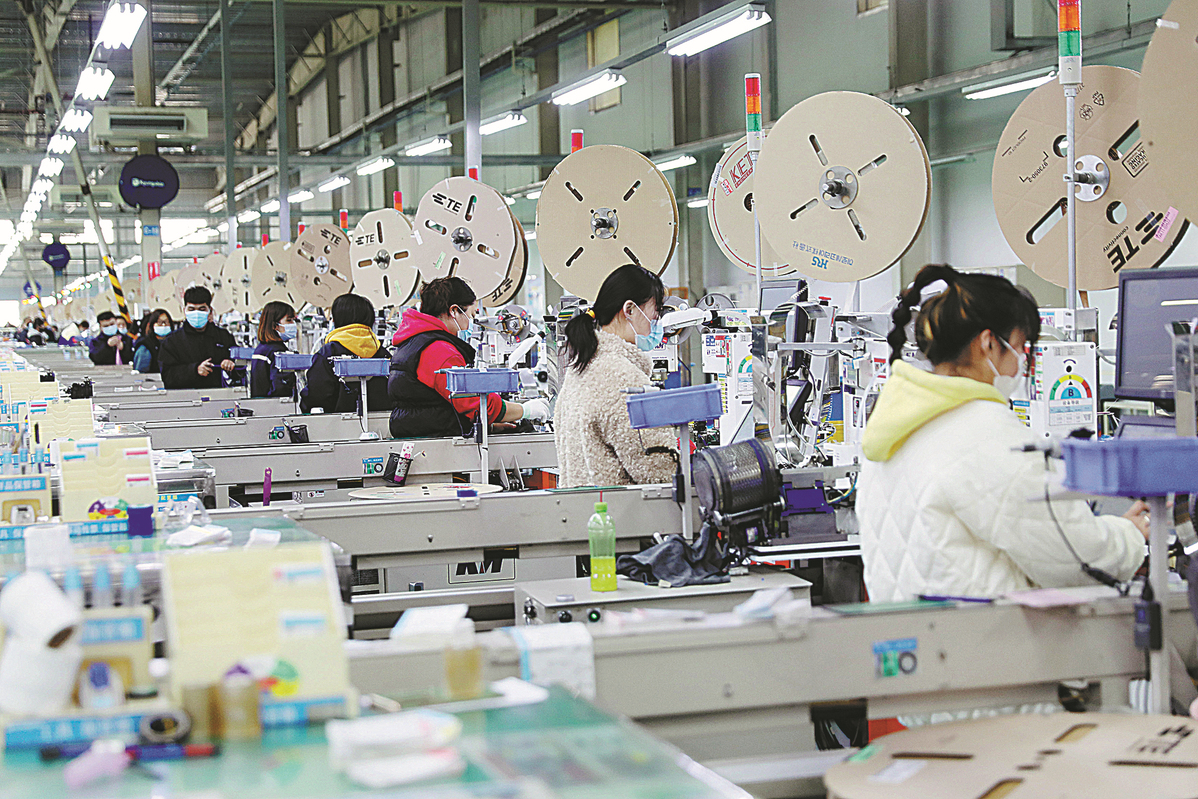Citi report finds MNC mood in China buoyant


Multinational corporations still consider China their favorite investment destination and, given the local supply chain resilience and effective control of COVID-19, do not intend to move out of the country, a new Citi report stated.
The global bank's report is based on an analysis of three recent surveys on supply chain relocation that are available in the public domain.
The three surveys were conducted by the American Chamber of Commerce China, the EU Chamber of Commerce China and the Japan External Trade Organization.
The American Chamber of Commerce China's survey found that 37 percent of US MNCs, which is a 5 percentage point increase from 2020, were planning to increase investment in their China operations by 1 percent to 10 percent in 2021.
At the same time, the share of US firms that had planned to maintain or lower their investment in China in 2021 declined by 3 percentage points to 34 percent.
The survey by the EU Chamber of Commerce China found that 59 percent of the EU MNCs polled considered expanding their China operations in 2021, which is 8 percentage points higher than that in 2020, and a record high since 2014.
Jin Xiaowen, a Citi economist, wrote in the report: "The supply chain relocation out of China appears to have slowed or even reversed amid the COVID-19 global outbreaks … China's effective containment of the virus has allowed its factories to quickly resume production again.
"During the last two years, its rather complete industrial system has allowed China to play a role of 'production of last resort' for the rest of the world when the ensuing rampage of COVID-19 in the rest of the world caused economic paralysis in both developed and developing economies.
"Before the outbreak of the pandemic and after the eruption of the US-China trade war, many MNCs thought their extensive reliance on China's manufacturing sector could be a potential risk. Since the outbreak of COVID-19, the global supply chain has been severely affected, and China's supply chain resilience has made them think again."
Citi noted that in the survey by the American Chamber of Commerce China, some 85 percent of US respondents-US MNCs operating in China-said they were not considering relocating manufacturing or sourcing out of China in 2020. In 2019, the corresponding figure was lower at 83 percent.
It is worth noting the US-China trade war, which started in 2018, has not altered the preference of US MNCs much, the Citi report said.
Similarly, the survey by the EU Chamber of Commerce China had shown that EU firms' intentions to move out of China reached a new low in 2021, as only 9 percent of EU respondents were considering shifting their current or planned investments in China to other markets.
The Citi report further noted that the Japan External Trade Organization's survey showed that for Japanese firms, China still ranked as the No 1 destination for overseas expansion and their willingness to invest in China increased by 1.8 percentage points year-on-year to 48.1 percent in 2020, following a drop of 3.6 percentage points year-on-year in 2019.
Jin said China's manufacturing sector resilience will continue to help mitigate any rapid exodus of supply chains out of the country.
"China has the second-largest consumption market in the world and has great potential for a further boost amid its economic structural rebalancing. We expect China's household consumption to rise from 37.7 percent of GDP in 2020 to around 44 percent by 2025. Besides the huge market, the authority's market openness effort may help attract more investment," she said.
In recent years, China has accelerated the opening-up of its markets, including the financial services sector. The China Banking and Insurance Regulatory Commission released rules in December to remove the cap on foreign ownership of insurance asset management companies. The country also abolished limits on foreign ownership of securities, fund management, futures and life insurance companies in 2020.
The Citi report said foreign MNCs appear confident about China's further market openness.




































